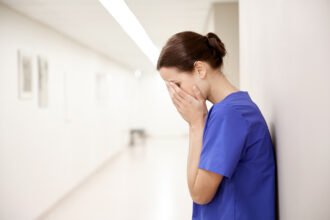Your friends and flatmates say you are not yourself. They claim you fall asleep watching the telly, at the pub, just about anywhere. Your boss says they’ve had enough of your ill humor. Why are you tired all the time? Is it possible your sleepiness is not just physical, but neurological? Could you be suffering from narcolepsy?
Narcolepsy
Excessive sleepiness, falling asleep in unexpected places, or sleep paralysis are all indicators of narcolepsy. Of course you should have such symptoms checked by a doctor, but you can take some steps to alleviate some of the problems yourself.
If you find yourself nodding off during the day, often in the middle of activities, you could be suffering from the neurological disorder narcolepsy. The typical body functions associated with sleep can intrude on you without warning during periods when you should be active:
- Body paralysis (cataplexy)
- Loss of muscle tone (slack jaw, drooling)
- Weakness in limbs
- Dream-like hallucinations
- Vivid, terrifying nightmares
- Difficulty falling asleep at appropriate times and in appropriate places
Causes of Narcolepsy
Though you may hope to change your symptoms through common-sense strategies (cut down on alcohol; turn off the telly early; make your bedroom dark and quiet), if you truly suffer from narcolepsy these normal remedies will be ineffective.
Narcolepsy is caused by an absence of hypocretin, a chemical normally produced in the hippocampus within the brain. Hypocretin, according to researchers at Harvard University in the U.S., is a neuropeptide that helps keep the brain awake and alert during periods of wakefulness, such as normal daylight hours. It is produced by neurons deep within the hippocampus.
These 100,000 to 200,000 neurons (out of several billion in a typical brain) are solely responsible for keeping you from suffering Rapid Eye Movement (REM) sleep symptoms during wakefulness. Without the neuropeptide, patients nod off unexpectedly and without any self-control.
Adding to the susceptibility are several risk factors:
- Aging
- Genetic predisposition
- Triggering infections
- Brain inflammation
points out that even a minor infection can “trick” your brain into having your immune system destroy those very cells that moderate your sleep cycle. Through no fault of your own, a sore throat or flu-like viral infection could trigger the reaction.
Treatment of Narcolepsy
Only your doctor can safely diagnose and prescribe a course of treatment for narcolepsy, but one promising medicinal treatment is Modafinil, available in 100 mg or 200 mg tablets.
Modafinil for a narcoleptic patient behaves as a selective dopamine re-uptake inhibitor (DR). Modafinil’s precise pharmacology is not completely understood, but it does block your body’s ability to absorb chemical dopamine. This stimulates the central nervous system and your brain, promoting wakefulness and better motor control to compensate for the lack of hypocretin.
Other Applications of Modafinil
Anyone who suffers from sleepiness when wakefulness is expected can benefit from Modafinil. Though principally used to help narcolepsy sufferers, it also has application for:
- Shift workers with changing (rotating) shifts
- Night shift workers
- Anyone working extended hours
Unlike stimulants like caffeine, Modafinil promotes wakefulness. It does not magically provide your body with the rest it needs; it prevents the brain from promoting sleep-like behaviors at the wrong times. As with any medication, avoid prolonged use without checking with your doctor. It can become habit-forming, and can cause withdrawal symptoms if not taken carefully.
Not Your Fault
Your daytime or work shift tiredness may not be your fault. You can end the teasing, complaining and embarrassment brought on by periods of unexpected sleepiness through careful use of Modafinil.
As with any medication, you need to be aware of your own medical history to avoid potentially harmful reactions. Inform your doctor or prescription service if you:
- Are pregnant
- Are considering getting pregnant
- Are on hormonal birth control
- Are breastfeeding
- Have a history of any heart problems such as aortic valve stenosis, mitral valve stenosis or a valve prolapse
- Are taking vitamins, natural supplements, or herbal remedies
Modafinil is not suitable for children and infants, but for adults Modafinil can provide relief from the confusion, terror, and danger of falling asleep in unexpected places and at inappropriate times.
The correct dosage of Modafinil taken as prescribed by a healthcare professional can free you from risks such as falling asleep behind the wheel, nodding off during important meetings, fading away on dates, or disappointing family, loved ones and friends with unexpected sleepiness.










